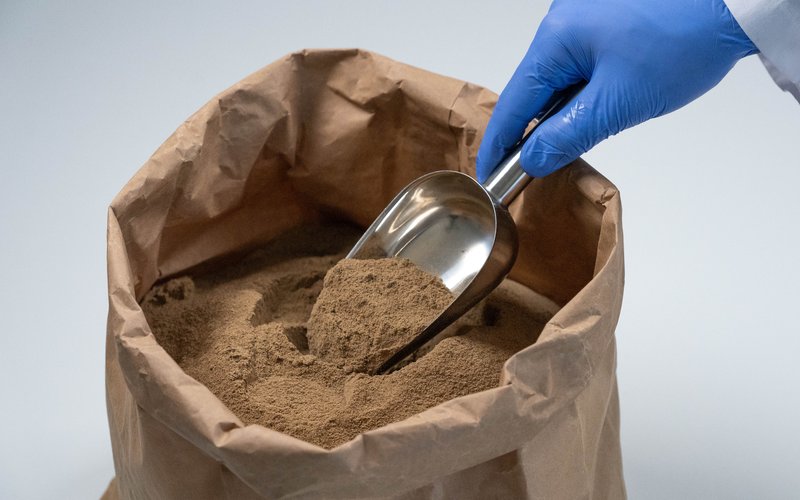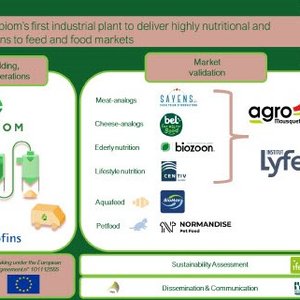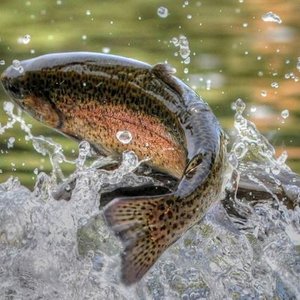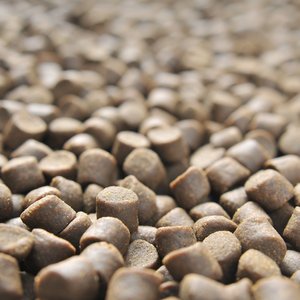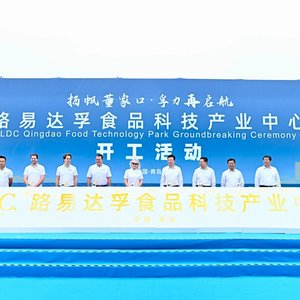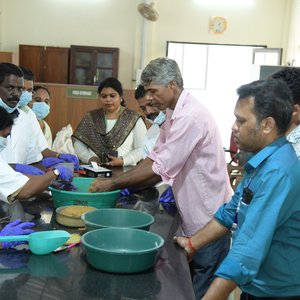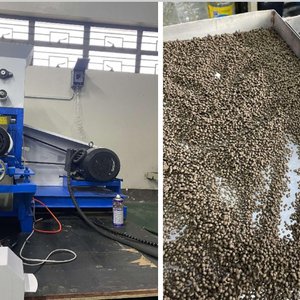The application of insect meal is an exciting area in animal nutrition and aquafeed and has taken flight over the last few years with the EU green light of its use in diets for more animal species. As a result, existing players are stepping up their capacity and new players enter the market to fulfill the expected growing demand for insect meal in the coming years.
Important series A investment secured
Agroloop Hungary (hereafter called ‘Agroloop’) is an ambitious new player in the insect market which was founded in 2020 by Istvan Nagy and Rajmond Percze. In December 2022, Agroloop secured a series A investment of EUR 18 million. This important investment paves the way to start the construction of a new production facility with a capacity of 3,000 tonnes of insect meal per year. The new facility – situated close to the Budapest airport – is planned to be up and running in Q4, 2024. Not only a first big investment is a fact but also through a strategic partnership, the produced volumes by Agroloop will be taken in by the UBM Group, the largest feed producer in Hungary with a capacity of 1 million tons of compound feed per year. Aquafeed.com caught up with Henrik Baranyay, R&D product manager at UBM Group, and István Nagy, CEO at Agroloop, to tell us more about their plans and if aquafeed is also part of their insect mission.
Strategic partnership with feed producer
Inspired by the potential of insect breeding and motivated by the early success stories of the industry that he saw first-hand when he lived in the Netherlands, Agroloop’s co-founder and current CEO Nagy started to craft his ideas for Black Soldier Fly production around 2016. Soon after, his team was able to build a small-scale production plant in Hungary, financed by an angel investor. This small pilot plant in Hungary produces a limited volume of dried larvae, protein meal, and oil, which are sold to companies for recipe testing and R&D projects. The production unit possesses all necessary certifications from the feed safety authorities to produce and process insects and insect-derived feed ingredients. While the first production plant is still there, Agroloop is now ready for the next phase and further commercialization and a range of poultry field trials with UBM is about to start.
István explains: “The strategic partnership we have with UBM is very important. They are a major compound feed producer, but also invest in specialty feed development and exploring alternative raw materials such as insect protein. In addition, they have high-level knowledge of feed formulation and feed processing. This helps us develop high-quality products with insect meal and bring them to the livestock feed market sooner than we could ever do by ourselves.”
Nutritional and processing expertise
Henrik from UBM is excited about the research around insect meal but also sees a lot of work still to be done. “While insect production has been around for quite some years and a lot of research is being done, we still see a lot of varieties between insect species, producers, and production methods (such as the insect substrate used). This is why every insect producer has their own specifications and research trials to make sure the formulations are correct, and we have the right information on nutritional values to replace part of the conventional protein sources with insect meal or insect oil. At UBM, we use insect meal and oil from Agroloop for different types of testing. Besides feed analysis to get more information about the nutritional values, we will soon start with our trials with live animals to see how it affects animal health and performance and if we can replace certain ingredients with insect products. In the end, it is all about the consistency of the product when an insect meal is produced on a larger scale. A new feed ingredient like insect meal can only be formulated well if we have accurate data on amino acids levels and ratios, nutrient densities, nutrient digestibility levels and more.”
UBM is also cooperating with several international institutes to test different feed processing techniques on different raw materials, including insect meal and oil. Henrik states: “It is important that we have the proof that including insect meal and oil can have a positive effect on animal health and performance. It can also reduce the environmental impact of the diet or reduce inclusion rates of MCFA acidifiers, coming from expensive fat sources like refined coconut oil.”
Focus on poultry, interest in aquafeed
While the first trials with Agroloop’s insect meal and selling insect meal-infused compound feed will focus on poultry, both parties see future potential for producing and selling aquafeed with insect meal in Hungary and neighboring countries.
Henrik explains: “Hungary’s aquaculture production is dominated by the production of carp in ponds and this sector has been showing a moderate growth over the last decades. We don’t produce fish feed at UBM yet, but we have been looking at this sector for a while now and we have some fish trials running at the Hungarian University of Agriculture and Life Sciences (MATE University). We see great potential to use insect meal to reduce the environmental impact of carp production and to increase the quality of feed, especially for fingerlings. Currently, we are in the product development phase and have yet to establish an insect meal business with large fish farmers, but the potential in our region is certainly there to improve on feed quality and sustainability of carp production.”
István from Agroloop addresses that the partnership between Agroloop and UBM will first focus on the optimization of insect meal in poultry feed, followed by pig feed, but agrees that all animal species can benefit from insect-based feed ingredients. “We are on an insect mission and dedicated to continuing and building more insect projects within the Central Eastern European region over the next 5-10 years. This means that Agroloop plans to step up the team from 10 to around 50 people in the next year and expand production capacity up to 60,000 tonnes per year by the end of the decade.”


